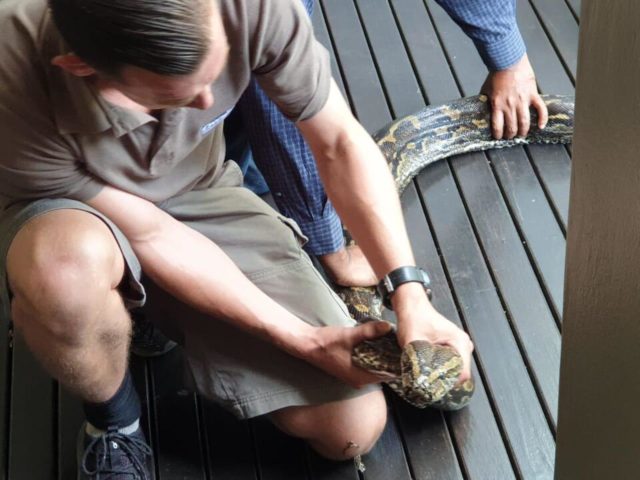“Agama lizards, armadillo lizards, tortoises and succulents are sold to unknown buyers. Medicinal plants are poached and sold openly on street corners at Springbok.”
A NORTHERN Cape woman, Malinda Gardiner, has started a petition demanding that action be taken to stop the poaching of reptiles and plants in Kamiesberg.
The petition, which is addressed to the Northern Cape Department of Environment and Nature Conservation, calls for the establishment of a working group of authorities and local people who can address the issue and find solutions to stop the poaching.
It also calls for communities to be updated on the status of actions taken and for awareness of this crime to be raised among visitors and locals.
The petition points out that reptiles and plants are being poached on a large scale in the Kamiesberg area.
“Agama lizards, armadillo lizards, tortoises and succulents are sold to unknown buyers. Medicinal plants are poached and sold openly on street corners at Springbok.”
On her Facebook page, Gardiner points out that “everyone you talk to knows about it”.
“Reptiles and plants are being poached on large scale in the Kamiesberg and sold for unheard of amounts. Plants are taken out by the bag full and sold openly on street corners. Searsia is broken and sold in bundles for braai hout (wood). Our natural world is being decimated. We hear that the correct authorities are aware of this, but it is not stopping. An online petition will be launched.
“We need everyone who knows and loves the rich biodiversity of the Kamiesberg to add their voice to help achieve this. Please sign the petition to save our nature.”
She is hoping to achieve 1 000 signatures.
Earlier this month, two South Korean men were heavily fined and deported after they were found guilty of stealing rare and critically rare plants in the Western Cape.
The two men are part of at least 12 groups apprehended with illegally collected succulents in the Western Cape and the Northern Cape in the past five months.
According to the National Prosecuting Authority, the Cape Town Regional Court convicted Byungsu Kim, 44, and Young IL Sunwoo, 71, on three counts which include possession of flora without documentation, picking of protected flora without a permit and picking of flora without written permission of the landowner and possession.
Both accused were sentenced to six years’ direct imprisonment, wholly suspended for five years on condition that they are not convicted of any offence related to picking, possession and collecting flora committed during the period of suspension.
The court attached R2.476 million in cash from Kim and R2.405 million from Sunwoo.
The money was divided between the Criminal Assets Recovery Account (CARA), the Western Cape Nature Conservation Board and the South African National Biodiversity Institute.
Kim was re-arrested on an Interpol warrant and his case was postponed to February 28, 2020 for an extradition to California, USA, where he faces charges similar to the crimes he committed in South Africa.
Sunwoo has been deported back to South Korea.
Advocate Aradhana Heeramun welcomed the sentence, saying there is a recent increase in cases involving the trafficking of succulent plant species.
The accused arrived in South Africa last year with a plan to search and collect flora. They were in the process of arranging for the flora to be exported from a nursery in the Western Cape when they were arrested.
It came out that the pair did not have permits to pick, possess, or permission from the landowners to pick the flora. They admitted that their conduct was unlawful and intentional.
They were found with plants listed as rare and critically rare in the SANBI Red List of South African plants.








